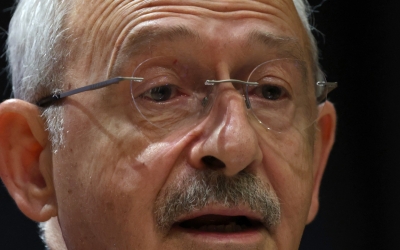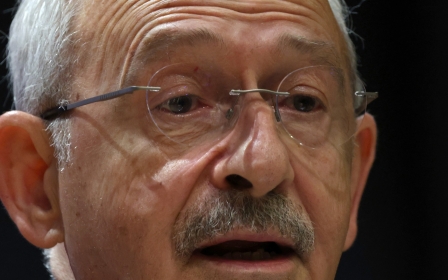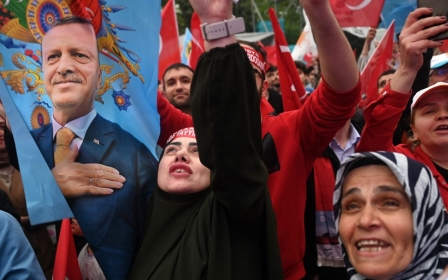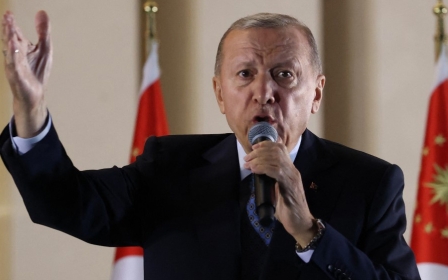Turkey elections: How Erdogan proved his critics wrong
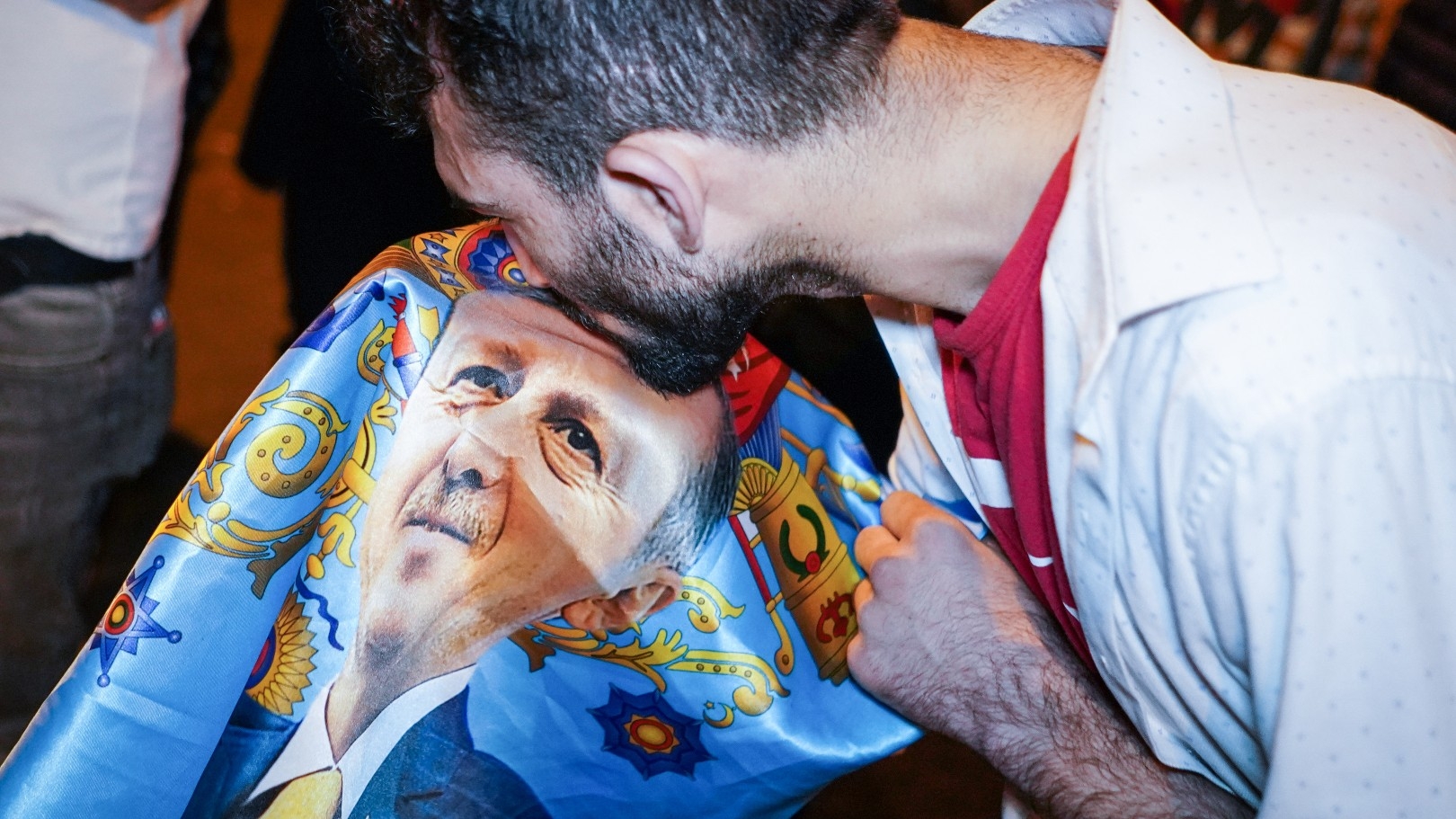
The results of last week's Turkish election runoff came in sooner than anticipated. By 7pm in Istanbul (4pm GMT), it was clear that incumbent President Recep Tayyip Erdogan had won another term in office with a little over 52 percent of the vote.
A victory speech from the balcony of the presidential palace in Ankara was expected later in the evening when suddenly live broadcasts zoomed in on the 69-year-old Turkish leader standing before the throngs of supporters who had gathered in front of his home in Kisikli, Istanbul.
Rather than deliver one of his trademark nationalistic speeches, he burst into song.
The popular Turkish love song Duyanlara Duymayanlara ("For Those Who Can't Hear") is one he has used throughout his election campaign. But on the evening of 28 May, it carried a considerably more potent - and pointed - message.
The consummate populist who has been in power for more than two decades proved his critics wrong: far from losing touch with the people, he recognised that when the going gets tough, appealing to Turkish hearts and minds through love songs can be more effective than citing dire economic statistics, hurling ad hominem attacks, or releasing damning sex tapes to eliminate opponents from the electoral race.
New MEE newsletter: Jerusalem Dispatch
Sign up to get the latest insights and analysis on Israel-Palestine, alongside Turkey Unpacked and other MEE newsletters
The latter appeared to be the strategy of choice for his rival, 74-year-old Kemal Kilicdaroglu.
Erdogan the Everyman
Since 2002, Erdogan has expertly crafted a communications strategy to appeal to individual emotions and the national zeitgeist, not only in Turkey but across the wider region.
Whether touting the "Turkish model" of Islamic democracy, or condemning Israel for attacking the Turkish aid flotilla to Gaza in 2010, he has never failed to position himself as leader of the downtrodden, the oppressed, or the average "Mehmet or Ahmet in Kayseri".
Maintaining his Everyman image was no mean feat against accusations of mismanaging earthquake rescue operations
Erdogan has also positioned himself as a challenger of western imperialism. His passionate speech at the United Nations in 2016 in which he declared "The world is bigger than five" is now an oft-repeated mantra as Ankara resists pressures to fall in line with the dictates of the five permanent members of the UN Security Council.
But, two decades later, many claimed that he had lost control of this narrative amid an unprecedented economic crisis, and more crucially, that he had lost touch with the common man.
This, his detractors believed - and his supporters worried - would cost him the presidency.
So, how did Erdogan pull off a victory? First, one may consider the image he projected to his constituents.
Erdogan came across as his own man, a politician with gravitas in the region, and on the global stage. Adept as an orator, owing in part to his religious education at the Imam-Hatip school, Erdogan delivered his speeches effectively, tailoring his tone and language to each and every audience.
Opting for Turkish folk music for his campaign leitmotif, Erdogan deftly appealed to conservatives and nationalists alike.
Maintaining his "everyman" image was no mean feat, having to push back against grave accusations by the opposition that his administration had dawdled in the aftermath of the devastating earthquakes and mismanaged the rescue operations.
Without a doubt, reputation and perception management is far more perilous for the incumbent in the wake of a mass-scale tragedy and an economic crisis. While, for the challenger, it is an opportunity.
For his part, Kilicdaroglu attempted to present himself as a low-key common man. This was underscored by his early campaign videos recorded from a kitchen table - a clear attempt to show solidarity with citizens facing a tough economy and rising food prices. He seems to have taken a page out of Bill Clinton's playbook during the 1992 US elections.
In 1991, President George HW Bush had a nearly unprecedented approval rating of 89 percent by the time Operation Desert Storm ended, which was considered a significant military victory for US forces. But in the end Bill Clinton won the election by focusing on kitchen table issues summarised in his famous slogan: "It's the economy, stupid!"
Yet, Kilicdaroglu is no Bill Clinton. And it is Erdogan who shares Clinton’s ability to speak to the people. Erdogan managed to channel everybody's older uncle singing with joy at a wedding, while Kilicdaroglu fell short in the relatability category. He was widely perceived as dry, "bookish", "soft-spoken" and lacking in charm and charisma.
He was even compared to Gandhi with his avowed mission to fight for the noble ideals of democracy and reforms.
Different approaches
During the election campaign, Erdogan deployed the two-pronged strategy of reminding voters of his achievements in office and speaking of his future plans for the nation.
Yet, opposition pundits panned his use of Turkish media outlets to put the spotlight on the completion of infrastructure megaprojects and the phenomenal growth of the Turkish defence industry.
It is not uncommon for incumbent leaders around the world to enjoy an electoral advantage. The so-called "incumbency advantage" and the "incumbency bonus" are nothing new. Incumbents receive coverage throughout their campaigns simply by their newsworthiness.
But in a 2017 piece published by the Washington Post, three researchers concluded that while incumbents habitually dominate the news, it does not necessarily help their campaign.
The news media often blame the government for the nation's problems, making the coverage more of a burden than a bonus. And it is clear Erdogan did not have an easy ride. Local media has been unsparing in describing the economic problems facing the average Turkish citizen, the plunging value of the Turkish Lira, high inflation, soaring food prices and the aftermath of the devastating earthquakes.
Murat Yesiltas, Professor of International Relations at Ankara Social Sciences University, says that Erdogan's communication platform deflected from these issues, instead focusing on foreign policy, defence, and security, while rival Kilicdaroglu focused on the country's tanking economy and democratic rights.
"Erdogan was quick to respond to Kilicdaroglu's promises by increasing the wages of low and middle-income families and amplifying discussion of the various reforms he initiated in the early 2000s," Yesiltas said.
Erdogan also focused on internal security issues. His future-looking rhetoric included slogans like "no concession to terror", "Turkey's interests and independence", and "migrants will return per the law and compromise".
By contrast, Kilicdaroglu's communications strategy came up short because of a narrow and singular focus on criticising the Erdogan administration without proposing alternatives or solutions.
"He identified the problems but did not propose solutions", added Yesiltas.
Then there were the myriad inconsistencies in his coalition platform. For example, Kilicdaroglu attempted to capitalise on his Alevi identity in what may have been a bid to show he was representative of all Turks, regardless of ethnicity or faith.
It was a risky approach, partly because sectarianism is reviled in the Turkish political tradition, but also because his coalition included strange bedfellows that rarely support common policies, especially the Turkish ultra-nationalists and Kurdish nationalist parties.
Understanding the people
Kilicdaroglu started off by calling for talks with Syrian President Bashar al-Assad to repatriate Syrian refugees. Then he announced that he was firmly in the pro-western camp and that, if elected, he would turn away from Russia.
He also promised visa-free travel to Europe for Turks within three months of his election. When the Germans refuted his promises of visa exemptions for Turks and it was clear that the Syrians would not be returning home in the near term, this exposed holes in Kilicdaroglu's grandiose promises.
A weak opponent, lacking charisma and a platform, who presented no vision except 'beat Erdogan' led to Erdogan's victory
Crucially, Kilicdaroglu's tone took a radical swerve to the right before the runoff in what may have been an attempt to woo the 5 percent of voters who had initially backed ultra-nationalist third-place candidate Sinan Ogan.
His slogans about Syrians - "they will go!” - did not cast the presidential hopeful in a sympathetic light and he was even labelled "Nazi Kemal".
In contrast, Erdogan's slogans were more inspirational (yet, perhaps, less achievable) as he invoked "the century of Turkey" and “continue travelling with the right man!”.
Also working in Erdogan's favour, of course, was the public's fear of the unknown person with untested policies during a time of crisis.
Voters are typically risk averse and the opposition did not adequately persuade them that the priorities of a Kilicdaroglu presidency would be to address actual problems, rather than revert to a parliamentary system.
Everything came together on 28 May when Erdogan won another term, albeit with the tightest majority in his career.
Some would argue this was accidental, or serendipitous. But a careful examination of the campaign would show that he won because of his clear understanding of his people and his skill in speaking to them. He effectively steered the conversation away from the current challenges of his administration and towards its successes.
Most of all, a weak opponent, lacking charisma, and a platform, and displaying nothing in the way of a vision except "beat Erdogan" led to the Turkish leader's victory.
Democratic elections around the world have seen these same mistakes and opportunities lead to the defeat of a strong incumbent, with Bush-Clinton in 1992 as the most well-studied case.
With the re-election this week of a sitting president, the Erdogan-Kilicdaroglu campaign is sure to be one studied in the future.
The views expressed in this article belong to the authors and do not necessarily reflect the editorial policy of Middle East Eye.
Middle East Eye delivers independent and unrivalled coverage and analysis of the Middle East, North Africa and beyond. To learn more about republishing this content and the associated fees, please fill out this form. More about MEE can be found here.


